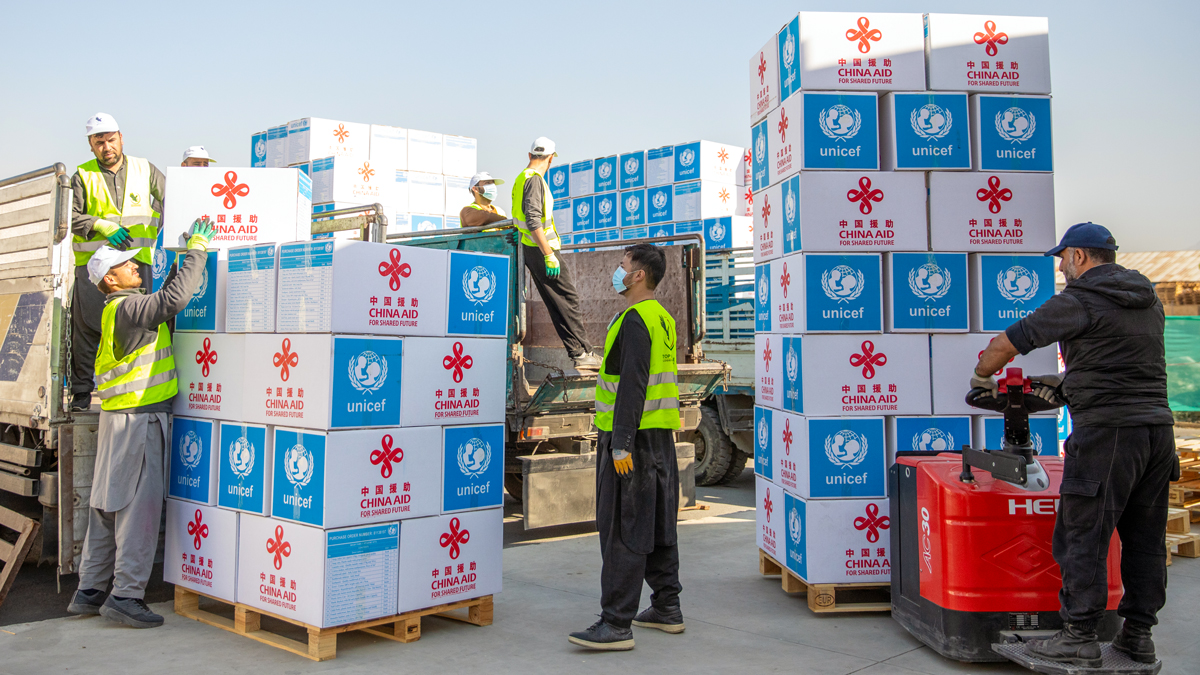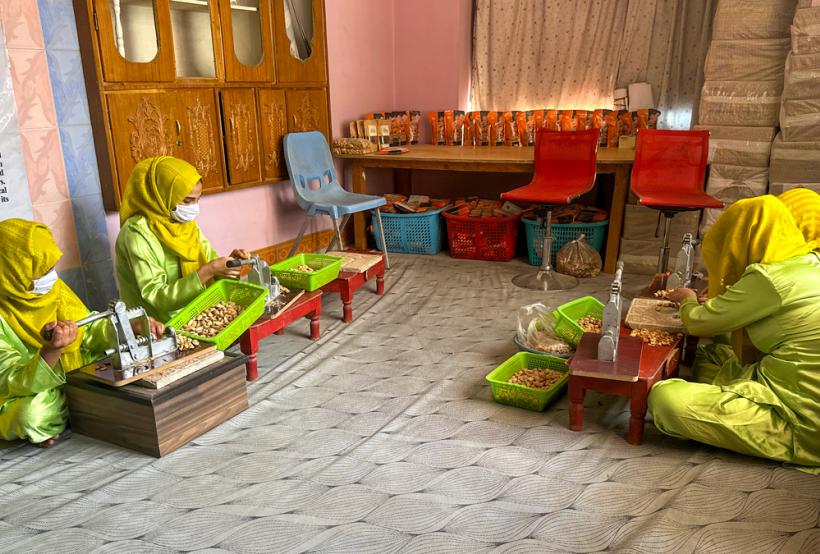Customs modernization supported by UN Trade and Development accelerates progress in boosting economic connectivity and commercial vitality for the landlocked nation.

© UNICEF/UNI687651/Khan | Emergency supplies of water, sanitation and hygiene arrive at a warehouse run by the United Nations Children’s Fund (UNICEF) in Kabul, Afghanistan.
In Afghanistan, where humanitarian aid serves as a critical buffer against economic instability, the speed and efficiency of customs clearance can determine how quickly relief reaches those in need. Streamlined processing of essential supplies such as food, medicine and emergency provisions not only strengthens aid efforts but also plays a vital role in the country’s broader recovery from economic shocks.
Yet, behind the scenes, a quiet but profound digital transformation is reshaping Afghanistan’s trade landscape. In a concerted push for modernization, ASYCUDA, UN Trade and Development’s (UNCTAD) flagship customs clearance programme is helping Afghan authorities transform customs operations focused on speeding up the movement of humanitarian goods and widening the pathway for women-led enterprises to engage in cross-border commerce.
Simultaneously, UN Trade and Development continues to strengthen collaboration with UN agencies and NGOs, harmonizing efforts towards trade facilitation and streamlined humanitarian logistics across Central Asia.
Digital customs transforming humanitarian operations
For years, the process of clearing humanitarian goods in Afghanistan was cumbersome, with relief agencies facing up to 14 separate sets of paperwork before shipments could be approved.
But changes came with the implementation of ASYCUDA’s Exemption System, which has reduced the required documentation by 93%, from 14 forms to just one. The impact is immediate and significant:
- 14,122 humanitarian trucks imported by UN agencies were processed in 2024 alone, carrying shipments from UNHCR, UNDP, WHO, FAO, UNICEF and WFP.
- Over 350,000 kilograms of relief goods were exempted from duties, ensuring essential supplies reached vulnerable communities without financial or logistical hurdles.
- The average clearance time at customs headquarters dropped from 10 days to mere hours, and at regional customs offices, from three days to just two hours.
Beyond cutting red tape, the system helped introduce greater transparency and efficiency. A data exchange interface between the ASYCUDA World (AW) Exemption System and Afghanistan’s Declaration Processing System now enables real-time tracking of shipments, allowing aid agencies and customs authorities to coordinate more effectively.
The result? Faster response times, reduced storage costs and fewer disruptions to the humanitarian supply chain — all critical to a country facing ongoing economic and security challenges.
Beyond aid: Empowering Afghan businesses and women entrepreneurs
ASYCUDA also helps support Afghanistan’s private sector, particularly among micro-, small- and medium-sized enterprises (MSMEs).
Shahgol Golzadah, a female entrepreneur in Nimroz Province, launched a textile business with 1,000 Afghanis, a used sewing machine and a plan. In the past, navigating customs regulations was a daunting barrier for small business owners like her. But with ASYCUDA-facilitated procedures to ease trade, she was able to export locally made garments for the first time, reducing reliance on imported clothing.
Ms Golzadah’s story is an example of a broader shift:
- In Helmand, Nangarhar and Nimroz, 154 MSMEs — 60% of them women-led — received UN-supported training in business management, financial planning and trade logistics, equipping them to navigate international markets.
- With ASYCUDA’s digital customs systems, processing times and costs have dropped, allowing Afghan businesses to integrate more easily into regional and global trade networks.
For a least developed country where women’s economic participation remains modest, these developments are not just technical advancements but essential steps towards greater financial independence, economic opportunity and long-term resilience.
A foundation for the future
Afghanistan’s adoption of ASYCUDA’s digital transformation aligns with long-standing global efforts to enhance trade and customs operations through automation and data-driven decision-making.
What sets Afghanistan apart is the urgency of its need. With economic recovery hinging on efficient trade facilitation, further investments in ASYCUDA-powered trade solutions could expand opportunities for local businesses, particularly women-led ones, while ensuring that humanitarian aid continues to reach those who need it the most.
At a time when digital trade corridors, artificial intelligence and machine learning-powered customs systems are increasingly redefining supply chains and global commerce, Afghanistan demonstrates how technology can serve as a catalyst for resilience and economic advancement, even in some of the world’s most challenging environments.



